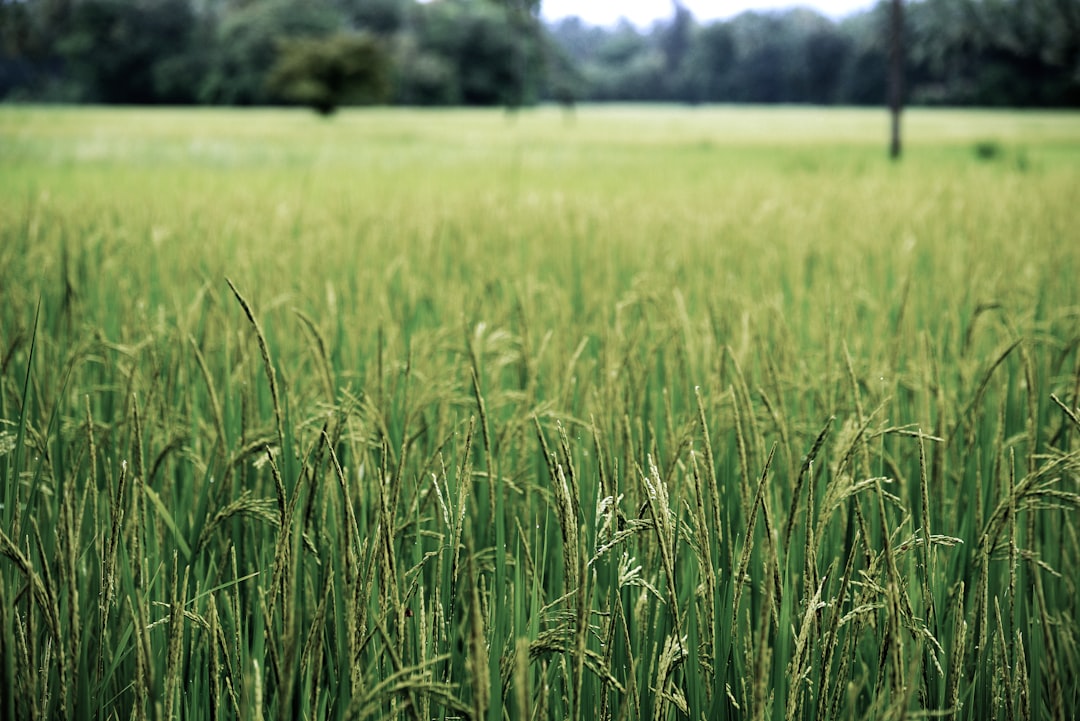Agricultural/Horticultural Scientist Kaipūtaiao Ahuwhenua
Agricultural/horticultural scientists study farm animals, soils, pastures and crops to improve growth, health and quality, and to prevent pests and disease.
Agricultural/horticultural scientists may do some or all of the following:
- research and advise on animal or plant diseases, pest control, and chemical use
- develop better methods of managing farms and orchards
- study the effects of agriculture and horticulture on the environment
- oversee new projects and field research
- research and write reports based on field study, and present results
- share research findings with other scientists, companies and government agencies
- write applications for research funding and manage budgets
- train and supervise lab technicians, research teams and field workers
- make sure all scientific work meets legal requirements.
Physical Requirements
Agricultural/horticultural scientists need to be reasonably fit as they lift and carry equipment during fieldwork.
They also need to have good eyesight (with or without corrective lenses) for laboratory work.
Useful Experience
Useful experience for agricultural/horticultural scientists includes:
- experience in a laboratory
- academic, scientific, or industry research
- any work in science or agriculture.
Personal Qualities
Agricultural/horticultural scientists need to be:
- accurate
- observant
- organised
- decisive
- good at solving problems
- good at communicating
- practical
- able to work well alone and in a team.
Skills
Agricultural/horticultural scientists need to have:
- a high level of scientific knowledge, especially in biology and chemistry
- knowledge of crops, pastures, soil types and farm animals
- knowledge of agricultural and horticultural chemicals, pests and diseases
- technical skills for performing experiments and operating scientific equipment.
Conditions
Agricultural/horticultural scientists:
- usually work regular business hours. They may work irregular or longer hours when doing fieldwork and research
- work in offices, laboratories and glasshouses, and on farms, orchards and nurseries
- may travel locally to talk to farmers and growers, and overseas to attend conferences or work on international research projects.
Subject Recommendations
A tertiary entrance qualification is required to enter further training.
Useful subjects include maths (especially statistics), chemistry, biology, and agricultural and horticultural science.
Agricultural/Horticultural Scientists can earn around $65K-$75K per year.
Pay for agricultural/horticultural scientists varies depending on qualifications, experience, and the type of work they do.
- Graduates with a Doctorate usually earn $65,000 to $75,000 a year.
- After three to five years, agricultural/horticultural scientists usually earn $75,000 to $90,000.
- Senior agricultural/horticultural scientists may earn $80,000 to $150,000.
Source: AgResearch, 2019.
Agricultural/horticultural scientists in research positions usually:
- apply for a postdoctoral fellowship after completing a Doctorate
- complete two or three postdoctoral fellowships (usually lasting two or three years each), before getting a permanent scientist position
- progress into senior research scientist, team leader, or managerial roles after they have about 15 years of experience.
Agricultural/horticultural scientists can specialise in a number of roles, including:
- Agricultural Biotechnologist
- Agricultural biotechnologists use techniques, such as genetic engineering, to improve the quality and diversity of plant and animal products.
- Agricultural Entomologist
- Agricultural entomologists investigate the causes of insect outbreaks, and research ways to control them through biological pest management and chemical processes.
- Agricultural Microbiologist
- Agricultural microbiologists identify and control plant and animal disease. They often work in specialised areas such as food technology or environmental management.
- Agronomist
- Agronomists advise farmers and growers on best agricultural practice, including how to increase crop yield and farming profits.
- Animal Scientist
- Animal scientists research and study the genetics, nutrition, reproduction, growth, and development of domestic farm animals.
- Crop Physiologist
- Crop physiologists study plant growth and the effects of environmental conditions and chemicals on crops.
- Environmental Scientist
- Environmental scientists study the environment and how plants, animals and other living things are affected by it. They also study external influences, such as pollutants, and advise how to reduce their harmful effects.
- Horticultural Scientist
- Horticultural scientists study the growth and development of plants and crops, including vegetables and fruits.
- Soil Scientist
- Soil scientists study the physical, chemical, and biological characteristics of soils to work out the most effective planting methods.
Years Of Training
5-9 years of training usually required.To become an agricultural/horticultural scientist, you need a Doctorate in science in an area such as:
- agricultural science
- microbiology
- biochemistry.
Agricultural/horticultural scientists in research positions usually apply for a postdoctoral fellowship after completing a Doctorate.
You may need to do two or three postdoctoral fellowships (usually lasting two or three years each) before getting a permanent scientist position.

 Hagley Community College
Hagley Community College